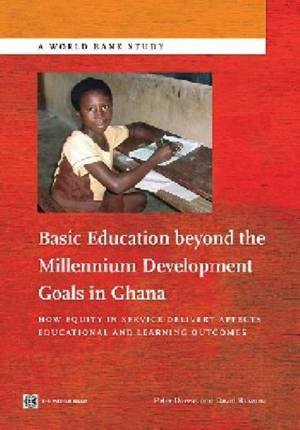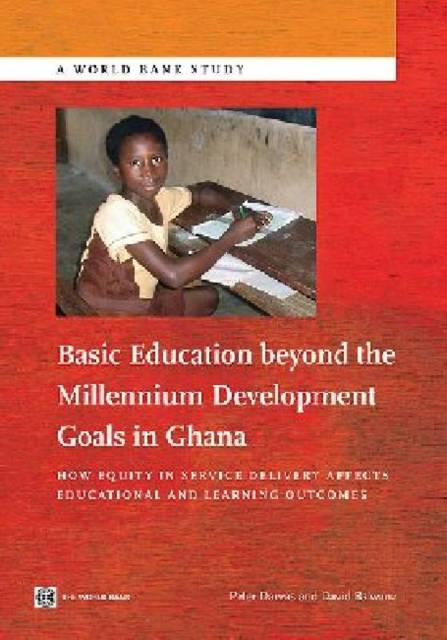
- Afhalen na 1 uur in een winkel met voorraad
- Gratis thuislevering in België vanaf € 30
- Ruim aanbod met 7 miljoen producten
- Afhalen na 1 uur in een winkel met voorraad
- Gratis thuislevering in België vanaf € 30
- Ruim aanbod met 7 miljoen producten
Zoeken
Basic Education Beyond the Millennium Development Goals in Ghana
How Equity in Service Delivery Affects Educational and Learning Outcomes
Peter Darvas, David Balwanz
€ 44,45
+ 88 punten
Omschrijving
Ghana is on a strong trajectory toward solidifying its middle income status. Today, more children than at any time in the history of Ghana have access to basic and secondary education. Over the past decade, incidence of extreme poverty has been cut in half amid strong economic growth. Ghana's recent achievements point to the possibility of more fully realizing the human potential of all individuals and of the country. Basic Education beyond the Millennium Development Goals in Ghana argues that realizing this potential requires a redoubling of efforts to reach the poorest half of Ghanaian children with quality basic education. At present, system-wide disparities in education service delivery and highly inequitable allocation of resources has led to unfair educational outcomes. These disparities create a "missing middle" in terms of learning outcomes: although a small number of children perform well on numeracy and literacy assessments, more than 60% of 6th graders do not attain profi ciency levels. Several recent initiatives point to the possibility of accelerating Ghana's progress toward quality basic education for all: they improve equitable resource allocation, strengthen social protection, and provide additional academic support to improve learning outcomes. By outlining key challenges and promising practices, Basic Education beyond the Millennium Development Goals in Ghana seeks to stimulate a lively and productive debate on the future of basic education in Ghana.
Specificaties
Betrokkenen
- Auteur(s):
- Uitgeverij:
Inhoud
- Aantal bladzijden:
- 182
- Taal:
- Engels
- Reeks:
Eigenschappen
- Productcode (EAN):
- 9781464800986
- Verschijningsdatum:
- 11/12/2013
- Uitvoering:
- Paperback
- Formaat:
- Trade paperback (VS)
- Afmetingen:
- 178 mm x 254 mm
- Gewicht:
- 331 g

Alleen bij Standaard Boekhandel
+ 88 punten op je klantenkaart van Standaard Boekhandel
Beoordelingen
We publiceren alleen reviews die voldoen aan de voorwaarden voor reviews. Bekijk onze voorwaarden voor reviews.







